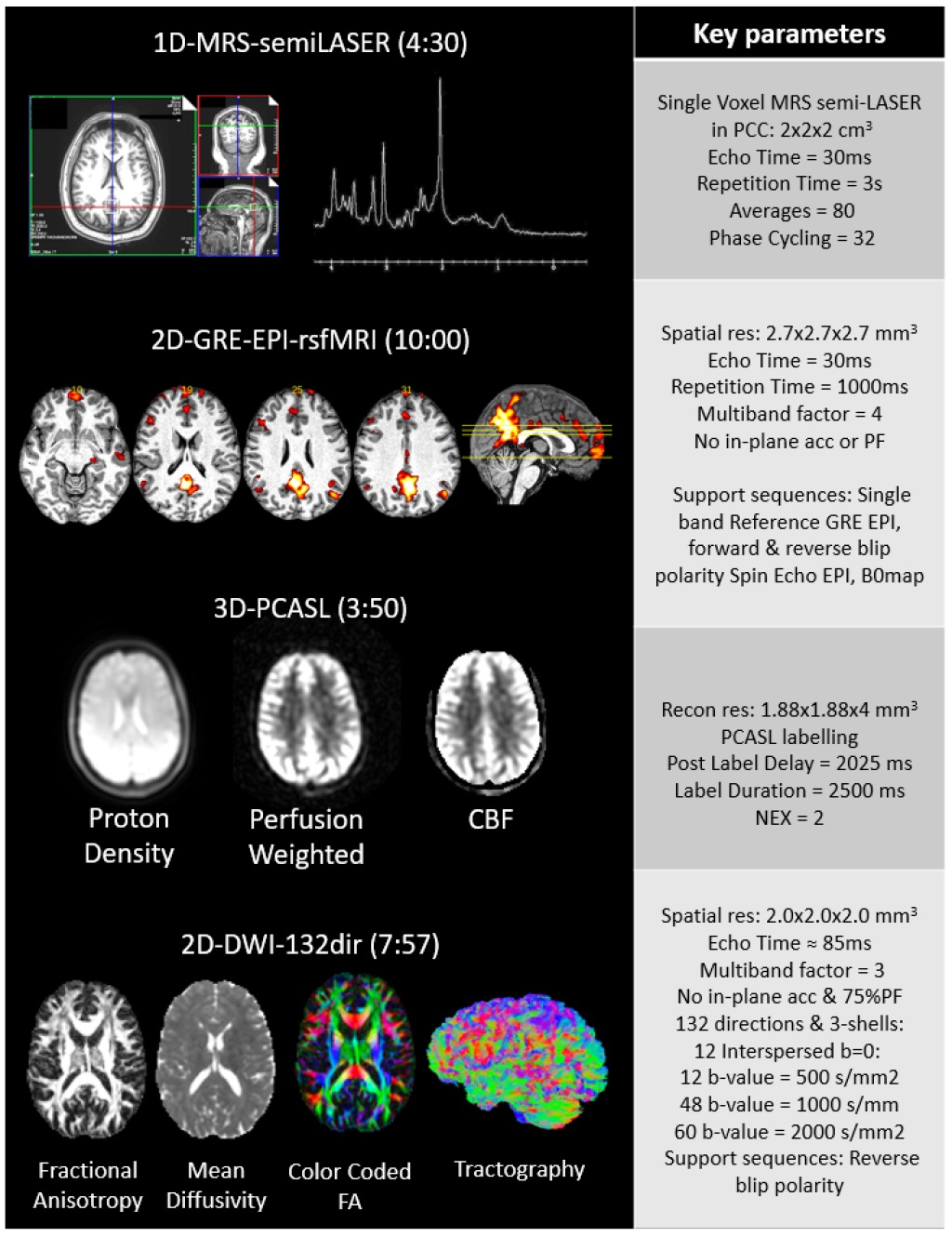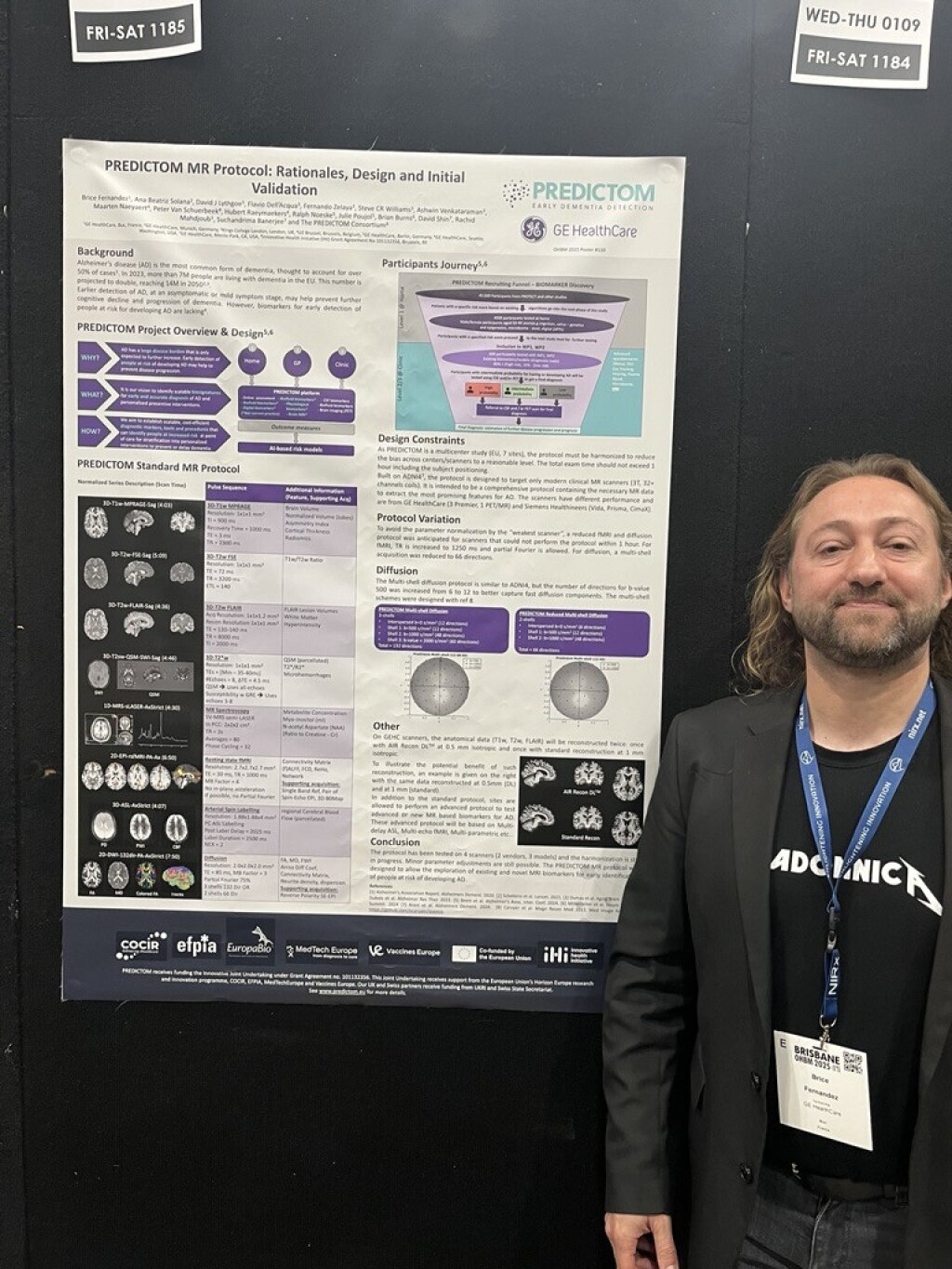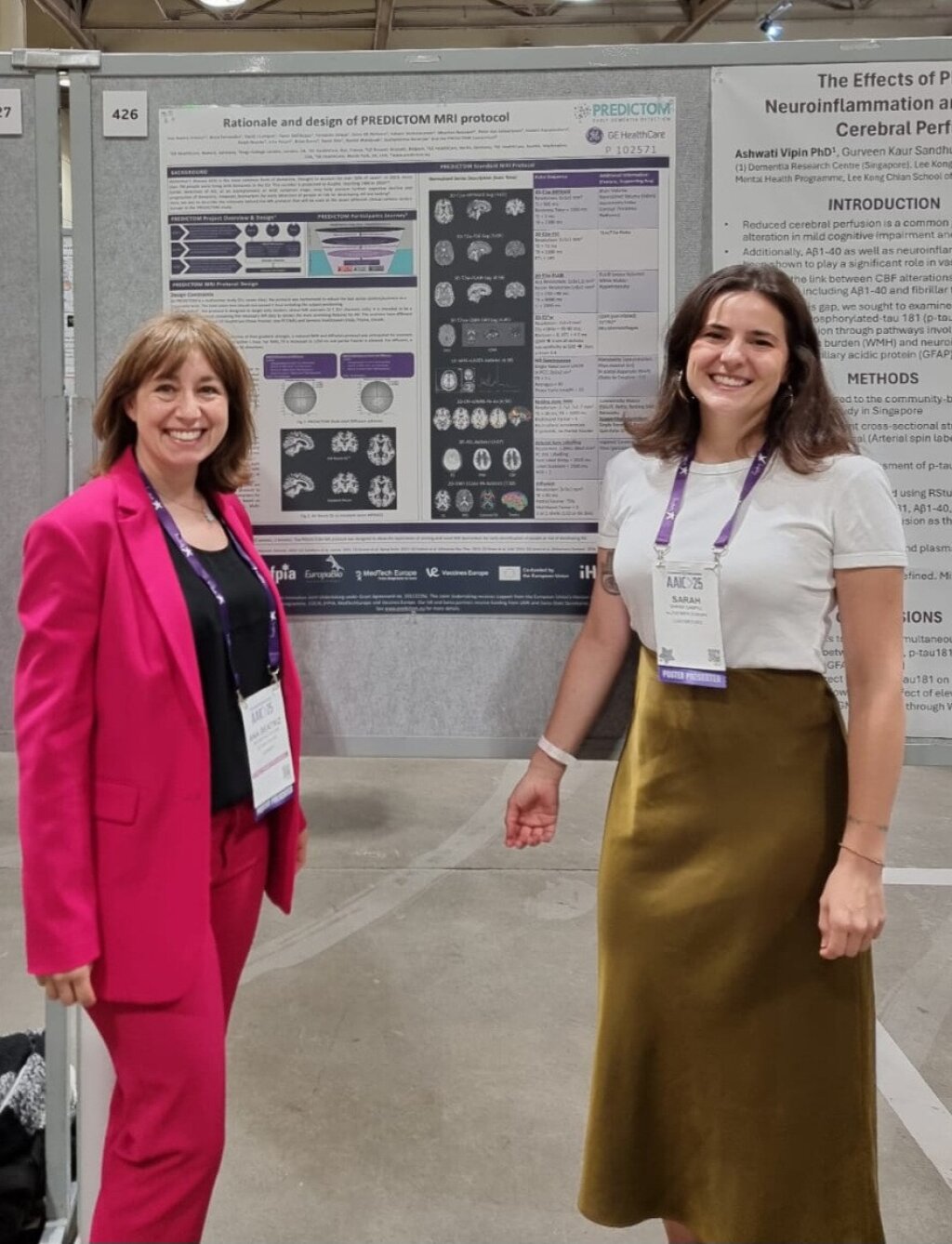PREDICTOM Launches Standardized MRI Protocol to Detect Early Alzheimer’s Risk
PREDICTOM has unveiled a standardized MRI protocol designed to identify early biomarkers of Alzheimer’s disease. With dementia cases in the EU projected to double by 2050, early detection is more critical than ever.
Parameters from 4 scans
Led by Brice Fernandez and Ana Beatriz Solana together with a consortium of international researchers, the PREDICTOM MR Protocol will allow extracting existing and novel MRI biomarkers that will be integrated in a multimodal, scalable, cost-efficient diagnostic platform to detect individuals at risk of developing Alzheimer's diseases (AD) — potentially before symptoms appear. The protocol integrates state-of-the-art imaging techniques, including 3D structural scans, diffusion and perfusion imaging, spectroscopy, and resting-state fMRI. The rationales and design of MRI protocol have been presented at OHBM 2025 Annual Meeting (Organization for Human Brain Mapping) (REF 1) and AAIC 2025 (Alzheimer's Association International Conference) (REF 2)
The PREDICTOM study will involve a multi-tiered recruitment funnel, starting with 4,000 participants from existing cohorts (REF 3) and narrowing down to 615 high-risk/low-risk (2/3 high-risk) individuals for in-depth clinical testing. These participants undergo a comprehensive battery of assessments, including cognitive and physiological tests, biofluid sampling, and cutting-edge MRI scans.
MR protocol harmonization is crucial to limit biases in AD biomarker prediction. Our study includes patients from 7 countries scanned at 7 clinical sites with 5 different scanner models (including both high-end and standard clinical sytem) from 2 different vendors
says Brice Fernandez, Senior Scientist at GE HealthCare
Brice Fernandez, taken at OHBM 2025 Annual Meeting
Ana Beatriz Solana and Sarah Campill at AAIC 2025
Built on the foundation of the ADNI4 protocol, PREDICTOM’s imaging strategy is tailored for modern 3T MRI scanners equipped with at least 32 channel coils. The protocol is under validation across multiple scanner models from GE HealthCare and Siemens Healthineers, with ongoing harmonization efforts to ensure consistency across sites.
The consistency can potentially become a model for the healthcare sectors, ensuring comparable results and reliable diagnosis. Most importantly, a standardized MRI protocols can improve the performance and generalizability of diagnostic algorithms.
💡 MRI scanning
MRI scanning is valuable to rule out causes of cognitive decline and track disease progression over time.
It is non-invasive and does not use radiation. Safe for repeated use.
But MRI is sometimes costly and time-consuming diagnostic tool, depending on the type of scan and the healthcare system in place.
REF 1 - Fernandez et al “PREDICTOM MR Protocol: Rationales, Design and Initial Validation” Aperture Neuro. (2025, June 13). OHBM 2025 Annual Meeting Abstract Book. Organization for Human Brain Mapping (OHBM), Brisbane, Australia. P.0110 https://doi.org/10.5281/zenodo.15641972
REF 2 – Solana et al “Rationale and design of the PREDICTOM MR Protocol” in Proceedings of the Alzheimer’s Association International Conference (AAIC), Toronto, Canada, July 29, 2025.
REF 3 - Brem et al, “Screening for Alzheimer’s disease in primary care using an AI driven screening platform: design of the PREDICTOM study,” in Proceedings of the Alzheimer’s Association International Conference (AAIC), Philadelphia, USA, July 28, 2024.






